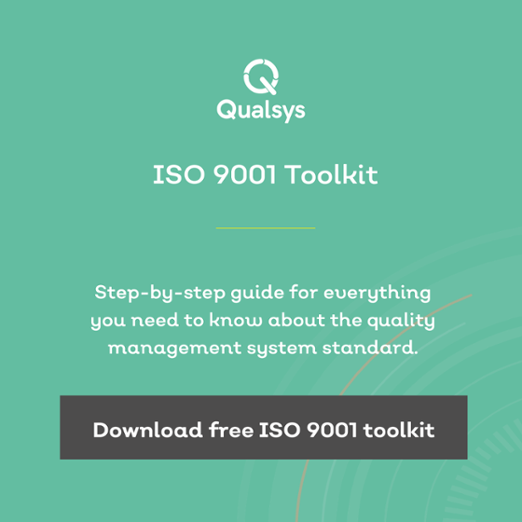Want to contribute to this article?
As we stand on the cusp of Industry 4.0, many organisations are facing down the challenge of digitisation and actively investing in new technologies. But for those businesses working in heavily-regulated industries, what might the revolution mean for quality management and compliance?

It's adapt with the times or face being left behind. Despite the uncertainty of Brexit, manufacturers have shown great resilience in coping with the demands of digitisation. And any business that chooses to embrace the opportunities provided by new and emerging technologies will reap the rewards when it comes to quality, productivity and compliance.
Below, we look at five organisations who have moved to get ahead of the game by building the latest technology into their business.
#1 – Productivity gains – Ocado
Enter one of Ocado's enormous warehouses and you'll see robot pickers moving around a grid, retrieving items as needed and operated in real time via a carefully co-ordinated 4G radio-control system. By employing such ground-breaking automation, Ocado have been able to establish themselves as the world’s largest online-only grocery retailer, shipping more than 200,000 orders every week to customers around the UK.

#2 – Greater agility – Yazaki Europe Ltd
When auditing its many suppliers, sites and customer service centres, automotive parts supplier Yazaki Europe Ltd encountered a number of isolated systems and processes, and no method of recording data beyond manual spreadsheets. To eliminate this problem, Yazaki adopted an electronic integrated audit-management system that standardised the audit process and made complying to the numerous standards and regulations much more straightforward.

#3 – Lifecycle management – Briggs Automotive Company
For British supercar manufacturers Briggs Automotive Company, makers of the BAC Mono, a "Formula 1 car for the road", having access to the most cutting-edge design tools was vital if they were to continue revolutionising in their field. Using product lifecycle management (PLM) software, the company create fully customised specifications of their vehicles and visualise and simulate designs three-dimensionally before going into production.

Photo credit: Bryn Musselwhite
#4 – Enforced workflows – W.E. Rawson Ltd
W.E. Rawson Ltd has been manufacturing and distributing non-woven textiles from their site in Wakefield for 150 years. But the company was found wanting when it came to systems for recording and analysing data for continuous improvement. With that in mind, quality managers took steps to implement a quality management system that would give them greater control over documentation, better training provision, and more effective reporting tools for measuring trends in data. Integrated and connected event-based triggers within the system would ensure that any compliance and quality issues could not be overlooked.

#5 – Lower overheads – Sodexo
With nearly 425,000 employees operating in 80 countries worldwide, Sodexo are constantly battling to keep pace with ever-evolving standards in a heavily regulated market. With that comes documentation. Lots of it. Facing huge overheads and a heavy administrative burden, Sodexo implemented an electronic document management system, enabling them to communicate more effectively across sites and provide documents to their staff and clients much more promptly.
So, the question is not if you should become a smart factory, but when. Then consider which technologies you should adopt and how you should implement them.
What you should do now
For more information about how to integrate EQMS with your existing manufacturing processes, download Qualsys's ISO 9001:2015 toolkit.









Share your thoughts on this article